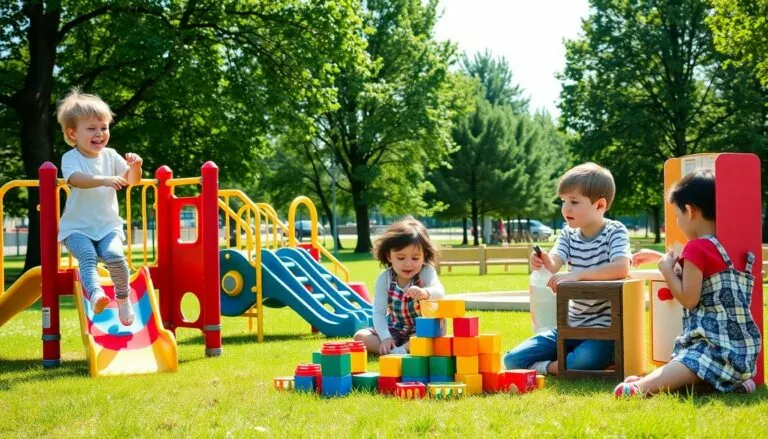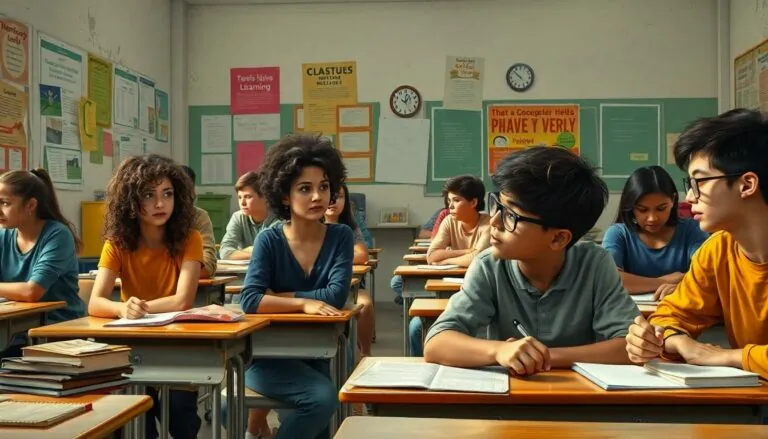Table of Contents
ToggleFinding the right educational environment for troubled youth can feel like searching for a needle in a haystack—if that haystack was also on fire. But don’t fret; alternative schools are here to save the day! These unique institutions offer tailored programs designed to meet the specific needs of young people facing challenges.
Imagine a place where learning isn’t just about textbooks and tests, but about personal growth and resilience. Alternative schools provide a supportive atmosphere that fosters creativity and encourages self-discovery. They’re not just schools; they’re stepping stones to brighter futures. So if you’re on the hunt for options that make education engaging and effective, you’re in the right spot. Let’s dive into the world of alternative schools near you and uncover the perfect fit for the youth in your life.
Overview of Alternative Schools
Alternative schools provide customized educational experiences for troubled youth. These institutions focus on addressing behavioral issues, emotional challenges, and learning differences. Programs at alternative schools emphasize social and emotional development alongside academics.
They often incorporate experiential learning, hands-on activities, and flexible curricula. Students engage in project-based work, allowing them to explore their interests while developing important life skills. Many alternative schools prioritize mental health support and counseling services, fostering a nurturing environment.
Class sizes tend to be smaller, ensuring individual attention for each student. Educators work closely with students to build trust and create personalized learning plans. Curriculum flexibility enables teachers to adapt lessons to meet the varied needs of learners.
Alternative schools often integrate vocational training and life skills classes, preparing students for future careers. This practical approach allows youth to gain valuable experiences in real-world settings. Success in alternative schools can lead to improved self-esteem and enhanced academic performance.
Many schools encourage parental involvement through workshops and regular communication. Strong partnerships between families and educators contribute to student success. Additionally, some alternative schools provide access to community resources, further supporting the needs of students.
Enrollment can vary based on location and available resources. Researching local options is essential for finding a suitable alternative educational setting. Connecting with community organizations can help identify specific schools that align with a youth’s needs.
What Are Alternative Schools?
Alternative schools provide specialized educational environments tailored for troubled youth. They focus on personal growth alongside academic learning, prioritizing the holistic development of students.
Definition and Purpose
Alternative schools cater to students with diverse needs, including behavioral issues and emotional challenges. These institutions aim to create supportive environments that foster resilience and creativity. They prioritize individualized learning plans that help students overcome obstacles, allowing them to thrive academically and socially. Programs often emphasize social-emotional development, ensuring that students gain skills essential for everyday life. Ultimately, alternative schools serve as stepping stones, guiding youth towards positive futures.
Types of Alternative Schools
Various types of alternative schools exist, each designed to meet specific needs. Some schools focus on academic recovery programs, helping students catch up on missed coursework. Others emphasize experiential learning, integrating hands-on activities and real-world experiences. Vocational training options provide pathways for students interested in specific trades, while therapeutic schools focus on mental health support. Charter schools often offer flexible curriculums tailored to diverse learning styles, ensuring every student can engage meaningfully. Each type addresses particular challenges faced by youth, providing valuable educational opportunities.
Benefits of Alternative Schools for Troubled Youth
Alternative schools offer numerous advantages for troubled youth. These institutions cater to individual needs through unique learning strategies, providing students with educational experiences that foster growth.
Personalized Learning Approaches
Personalized learning approaches are a hallmark of alternative schools. Educators assess each student’s strengths and challenges to create customized educational plans. With tailored instruction, students engage more deeply with subjects, which enhances their understanding. Flexibility in curriculum design allows teachers to adapt lessons based on student progress. Many students thrive in these environments, experiencing less anxiety and more confidence in their abilities. Alternative schools prioritize individual learning styles, ensuring that every student receives the attention they require for academic and personal success.
Supportive Environment
A supportive environment characterizes alternative schools, promoting emotional and social well-being. Smaller class sizes enable stronger connections between students and teachers, fostering a sense of belonging. In such settings, educators focus on building trust, which encourages open communication. Many students feel more comfortable expressing their feelings and concerns, leading to improved mental health. Additionally, collaborative activities emphasize teamwork and peer support, which are crucial for personal development. Alternative schools aim to create safe spaces where students can explore their identities while developing essential life skills.
How to Find Alternative Schools Near Me
Finding the right alternative school for troubled youth requires a strategic approach. Many options exist, making research essential.
Research Methods
Start by using online resources that provide lists of alternative schools. Educational websites often offer ratings and reviews. Social media platforms can also connect individuals to local communities discussing educational options. Additionally, reaching out to local school districts provides valuable information on available programs. Parents and guardians should consider visiting community forums for personal experiences and recommendations. State education departments usually maintain directories of certified alternative schools, simplifying the search process.
Visiting Schools
Scheduling visits to potential schools creates opportunities for firsthand observation. During these visits, parents can assess the school environment and programs offered. Meeting with educators allows for in-depth discussions about curriculum and support services. Observing classrooms provides insight into teaching styles and student interactions. Asking questions about class sizes or student-to-teacher ratios helps clarify how individualized attention is provided. Experiencing the atmosphere directly assists in determining if a school aligns with a child’s needs. Engaging with staff ensures that concerns can be addressed and priorities confirmed.
Key Factors to Consider
Selecting an alternative school for troubled youth requires careful consideration of various factors ensuring a supportive fit for each student.
Curriculum and Programs
Curricular offerings focus on individualized learning experiences that address personal and academic needs. Hands-on activities and experiential learning play a vital role in engaging students and fostering real-world skills. Programs often integrate social and emotional learning components alongside traditional academics, ensuring a well-rounded approach to education. Each program is typically tailored to the unique challenges faced by students, promoting personal growth and resilience. Parents might inquire about vocational training and life skills classes, which can enhance future career readiness. Tracking students’ progress through customized educational plans allows for ongoing adjustments based on their strengths and areas for improvement.
Staff Qualifications
Qualified educators often hold certifications in specialized areas and possess experience working with troubled youth. Staff members typically receive ongoing training in behavioral interventions and support strategies, equipping them with the tools to address diverse needs. Smaller class sizes allow for stronger connections between students and teachers, fostering a supportive learning environment. Each educator’s background can enhance their ability to build trust and communicate effectively with students, encouraging emotional and academic growth. Engaging with staff during school visits can provide insights into their qualifications, teaching methodologies, and commitment to student success.
Conclusion
Finding the right alternative school for troubled youth can be a transformative journey. These institutions provide tailored support that addresses the unique challenges many young people face. By focusing on holistic development and individual needs, alternative schools pave the way for personal growth and academic success.
Parents and guardians should take the time to explore local options and engage with educators to ensure the best fit for their child. With a commitment to fostering resilience and creativity, alternative schools can play a crucial role in helping youth navigate their path toward a brighter future.








